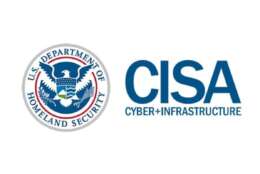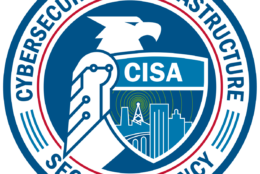Cybersecurity and Infrastructure Security Agency
-
The directive comes after suspected China state-backed hackers allegedly used network administration tools to access critical infrastructure systems.
June 13, 2023 -
A memo released today extends the deadline for when agencies have to start collecting secure software attestation forms from vendors.
June 09, 2023 -
If there is one civilian agency in the United States whose mission is as important to our national defense – and possibly more difficult – as the Defense Department, it is the Cybersecurity and Infrastructure Security Agency. So I invited CISA’s Deputy Director Nitin Natarajan to the studio recently to tell folks how his agency is dealing with those challenges.
June 07, 2023 -
The self-attestation form is where the rubber meets the road in the government's push to have its software vendors follow secure development practices.
May 04, 2023 -
While federal agencies search endlessly to hire people skilled in cybersecurity, local government might have a different way. How about enlisting volunteers to help protect critical infrastructure from cyber attacks. That's the idea behind a detailed set of recommendations from the law firm McDermott Will & Emery.
May 04, 2023 -
The government is grappling with the mechanics of addressing whether their software supply chain is secure. Download our new ebook to get a snapshot from leaders at CISA, the IT Industry Council and DoD’s National Counterintelligence and Security Center into current efforts.
May 04, 2023 -
No one can predict when disaster will occur. But organizations, whether government or private, can control how well they respond. It is all about risk mitigation and resilience.
April 28, 2023 -
CISA has hired about 80 people through the "cyber talent management system," while FEMA is also about to start using CTMS.
April 28, 2023 -
CBP is already moving forward with an effort to embed AI algorithms in screening technology, while CISA's director has raised concerns about the "weaponization" of tech.
April 26, 2023 -
CISA is pushing tech companies to embrace 'secure by design' principles. The agency's internal software development division is also spreading the "DevSecOps" gospel.
April 19, 2023 -
Lots of things have days, like National Ice Cream Day. Lots of things have whole months, like USDA Invasive Plant Pest Month. So why not emergency communications? Emergency Communications Month is in fact going on right now.
April 19, 2023 -
Michael Chappell is the new CIO at the Army’s Program Executive Office Enterprise Information Systems (PEO-EIS), a position that the organization re-established after nearly five years.
April 18, 2023 -
The new roadmap gives agencies some easier first steps toward meeting the mandate of a "zero trust" security architecture.
April 11, 2023 -
If you buy or approve the acquisition of software for the government, you probably already know. You're going to have to deal with something called a software bill of materials, or S-BOM as part of understanding what you're getting.
April 07, 2023 -
The great Solar Winds breach back in 2020 prompted many agencies to improve their cybersecurity. Even the Cybersecurity and Infrastructure Security Agency (CISA) found it had to improve its own ability to detect threats.
March 30, 2023













